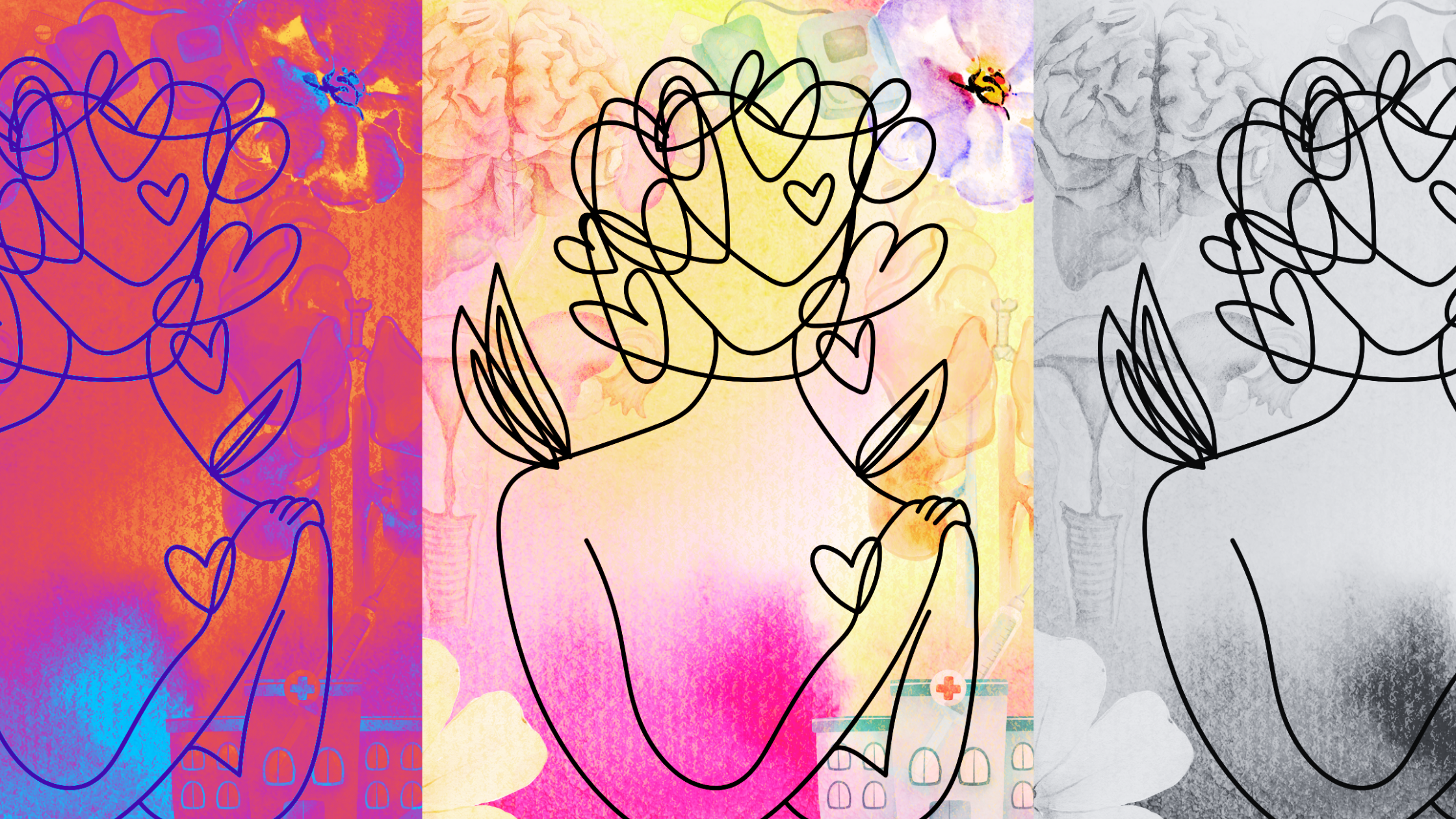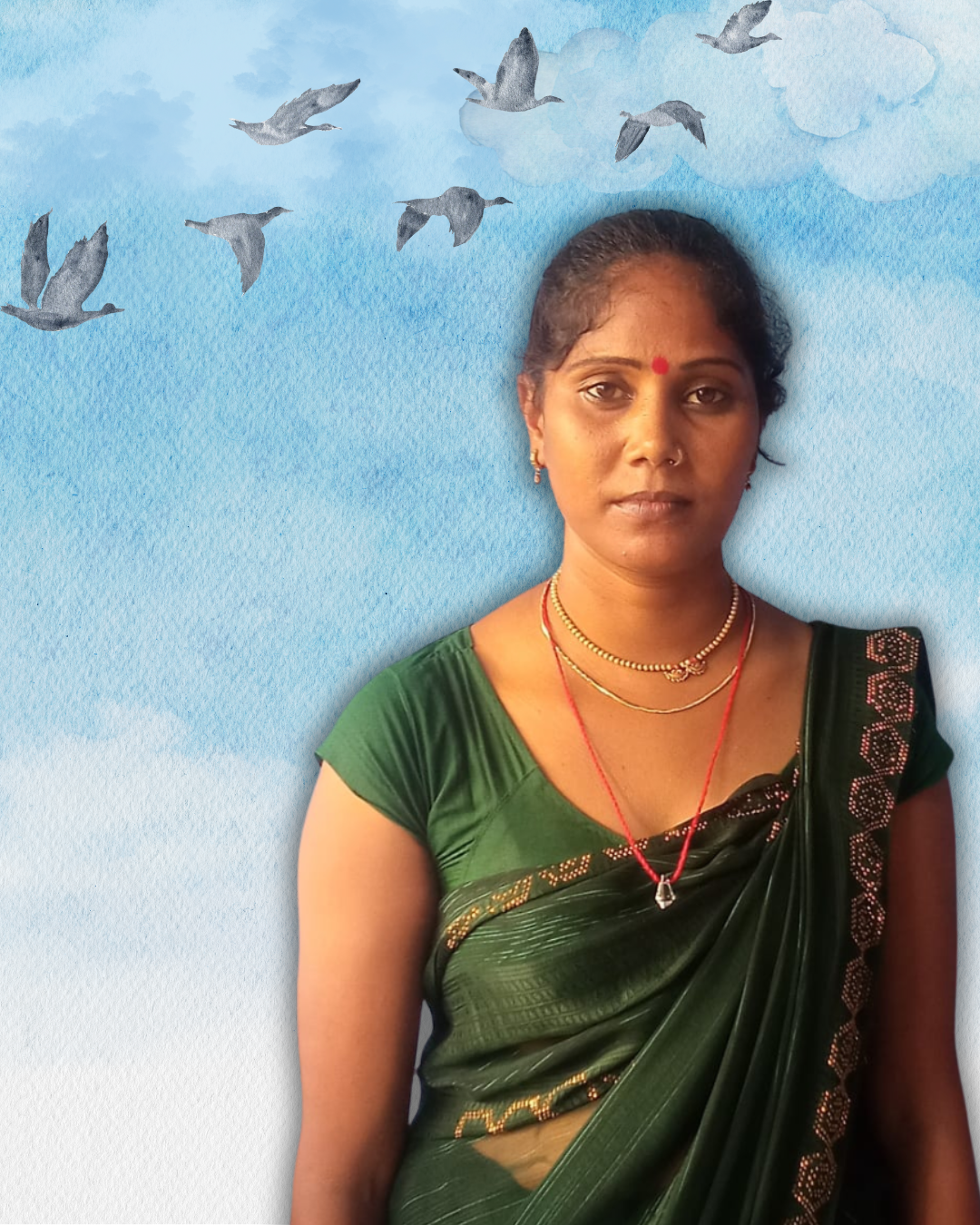Fate, Biology and Shame

The ‘Obstacle Course to a Woman’s Wellbeing’
A widowed mother of two, Rinki Kumari from Sahbajpur, Jehanabad, works as a Master Resource Person-Health & Nutrition at JEEVIKA to earn her livelihood. Health challenges such as frequent urination, a burning sensation during urination and vaginal discharge plagued her for the last 6 months. Even as she supported communities in accessing and understanding health and nutrition, she fought her own ailments, alone. This thirty-year-old pushed through, burdened with the additional weight of shame along with the pervasive physical discomfort of these symptoms.
“Pati bhi nahi hain, ye sab samasya kisko bataein samajh nahi aata… Log galat nazar se dekhte hain. (I don’t know whom to share these problems with… people would see it in the wrong way as I am a widow),” says Rinki Kumari. Social norms often link women’s reproductive health issues with assumptions about their sexual activity, more so in rural settings like Rinki’s.During a recent training session conducted to sensitize women about their health & wellbeing, she received information about the common health issues women face but ignore due to lack of knowledge, awareness and support. She learnt to name and identify some of these symptoms associated with women’s reproductive health —symptoms that she had lived with for the last 6 months. For her, this knowledge brought some much-needed perspective.
 Rinki Kumari Rinki Kumari |
“Jab training me jaankari mila to laga ki ye gambheer samasya hai aur deri karne se badi pareshani ho sakti hai. Agar mujhe kuchh ho gaya, to mere bachchon ko kaun dekhega. (When we were given this information in the training, I felt that this really is a serious matter, and any more delay can cause a severe problem later. I realised that if something happens to me who will look after my kids?).” The realisation shook her so deeply that she immediately took action. She visited a doctor the very next day and started taking medicines. She has already started feeling better. “Main agle din hi doctor ke paas gayi. Doctor ne jaanch kiya aur dawa diya, abhi main pehle se behtar mehsus kar rahi hoon.” |
A Turning Point
Just knowing that her experience was valid allowed Rinki to overcome her hesitation in seeking care. Overcoming these obstacles is no mean feat —from questions regarding her dignity to doubts regarding the severity of her own symptoms, she was dealing with a complex web of social norms, biology, fate and conditioning while being a frontline worker herself. Of course, progress isn’t linear, and the shame may not be gone forever, but the positive experience of seeking care and receiving it might mean a slightly higher chance of seeking care in the future.
While Rinki faced an additional layer of stigma due to her widowhood, many women delay care seeking for a variety of reasons—some obvious others poorly understood. Even as we interact with hundreds and thousands of Rinkis in our work with SHGs, we know that this shame is not unique to her. Women are taught to be ashamed not only of reproductive and sexual illness but also of taking up space—seeking care is looked down upon, knowing her own body is looked down upon, loving herself is looked down upon.
Closer Than it Appears
We may have the urge to see this story as a far-off reality of women in rural, remote areas but the truth is much closer. If you’re a menstruator reading this article, I implore you—when was the last time you had a check-up? How long have you been living with the pain in your head, back, feet? When was the last time you had a gynaecological exam?
Let us take this opportunity to learn from Rinki’s moment of change, an essential step towards freedom—from illness, from making oneself invisible, and from mistaking discomfort as a marker of feminine resilience. May her choice to seek care also inspire us to listen more closely to our own bodies and act without delay. May her freedom inspire us all to be free.
The author is Dr Shivangi Shankar, Manager – Knowledge Management Specialist, Health and Nutrition at PCI India. The author expresses gratitude to Anila Samuel, Program Manager – Family Planning, Pankaj Kumar – Innovation Coordinator and Swati- SBC & Design researcher for curating primary quotes and insights from the field. Special thanks to Rinki Kumari, MRP, Jehanabad, whose experiences anchor this piece.
